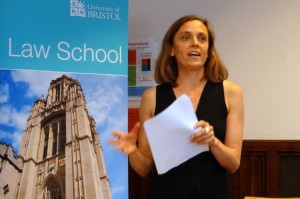
This blog is written by Caroline Bird, Future Cities and Communities Knowledge Exchange Manager at the Cabot Institute.
This article is part of a series of ‘future cities’ posts, originally published towards the end of 2015 by the Cabot Institute.
In Bristol’s European Green Capital year, the University of Bristol and its Cabot Institute worked with the Bristol Green Capital Partnership and its members to convene a series of four conversations between Bristol academics and city ‘thinkers’ from across public, private and civil society exploring how Bristol delivers the ‘future city’ – what capacities it needs to be resilient, sustainable and successful and how it can start to develop these in times of changing governance and tightened finances.
 |
| Wordle of what we thought we’d talk about… |
Cities such as Bristol are increasingly prominent in national growth strategies. The economic growth that Bristol helps to drive plays a fundamental role in shaping many aspects of life within the city. Different sectors, areas and social groups participate in and feel the impacts of growth in different ways. For some, the need for growth is unquestionable, particularly in an era of austerity, with the assumption that growth somehow underpins the pursuit of all other objectives. But for others, the pre-eminent growth logic is divisive socially and unsustainable environmentally. Growth therefore needs to be at least managed and possibly challenged more fundamentally. In this fourth conversation we considered what economic models make sense for the city and what capacity the city has to make changes in the context of a national and international economic system.











